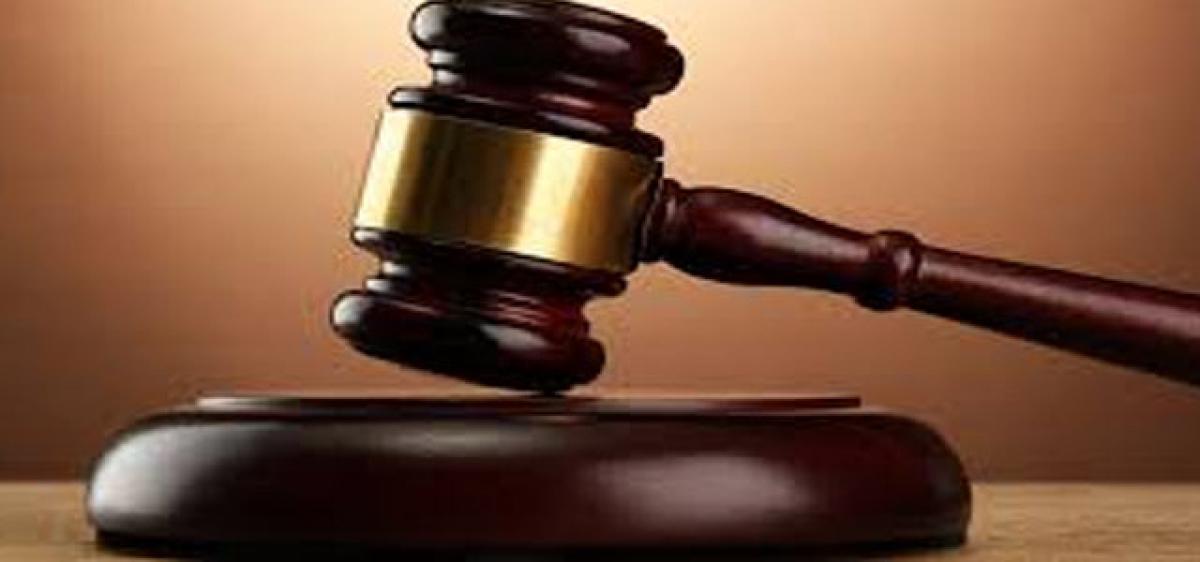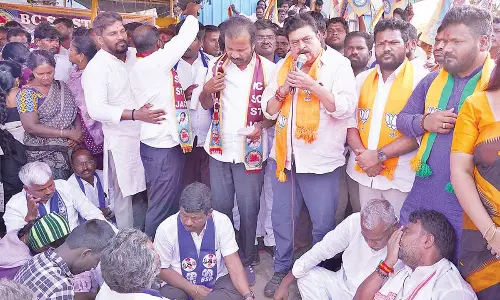When the judgement is not a judgement

“A litigant, who comes to a court of law, expects that inherent and essential principles of adjudication and adherence to doctrine of audi alteram partem, rule pertaining to fundamental adjective and seminal substantial law shall be followed and ultimately there shall be a reasoned verdict,” the Bench said and added, “When the accused faces a charge in a court of law, he expects fair trial. The v
In an epoch-making judgement delivered on January 6, the apex court has echoed the feelings of the common man about the justice delivery system in the country.Justice Dipak Misra writing for himself and Justice Amitava Roy in Crl.Appeal Nos.32-33 of 2017 said, “Performance of judicial duty in the manner prescribed by law is a fundamental to the concept of law in a democratic State. It has been quite often said and, rightly so, that the judiciary is the protector and preserver of rule of law. Effective functioning of the said sacrosanct duty has been entrusted to the judiciary and that entrustment expects the courts to conduct the judicial proceedings with dignity, objectivity and rationality and finally determine the same in accordance with law.”
“A litigant, who comes to a court of law, expects that inherent and essential principles of adjudication and adherence to doctrine of audi alteram partem, rule pertaining to fundamental adjective and seminal substantial law shall be followed and ultimately there shall be a reasoned verdict,” the Bench said and added, “When the accused faces a charge in a court of law, he expects fair trial. The victim whose grievance and agony have given rise to the trial also expects that justice should be done in accordance with law. Thus, a fair trial leading to a judgement is necessary in law and that is the assurance that is thought of on both sides.”
The case in question relates to a cryptic order passed by the trial judge in a matter concerning the offences of Sections 304-B, 306 and 34 of IPC. The said order dated 28-01-2008 , inter alia, stated “...The judgment has been typed separately, has been dated, signed and announced. Resultantly, Accused T P Ratre is acquitted of the charge under Section 306....”.
The apex court noted that apart from the aforesaid order, as per the inquiry conducted by the learned District Judge, there was nothing on record. The trial judge had not dictated the order in open court. The Supreme Court observed that in such a situation, it is to be determined whether the judgment had been delivered by the trial judge or not.
Dealing with a catena of judgments on the issue, the apex court and concluded that non-availability of judgement can never be a judgement because there is no declaration by way of pronouncement in the open court that the accused has been convicted or acquitted. “Without pronoun cement of a judgment in the open court, signed and dated, it is difficult to treat it as a judgment,” the Court added. Dismissing the appeals, the Court directed the trial court to whom the cases have been transferred to proceed in accordance with law.
YE HAI MY INDIA!
Now, here comes some latest news from the Gujarat High Court. In a verdict delivered after a legal battle lasting full 22 years since the offence of demanding bribe of Rs.10, five traffic constables have been exonerated. They were caught by the sleuths of the Anti-Corruption Bureau in Jene, 1994, and were charged for the offence of accepting a bribe of Rs.10. The Special Court for ACB cases found them guilty and sentenced to two years of imprisonment. However, the High Court overturned the judgment of the Special Court saying the ACB had failed to prove its case and that the witnesses could not identify the accused persons.
Acquittal is fine but the mute questions that remain unanswered is “What about the mental agony, physical and financial hardship and ignominy suffered by these five constables almost for a full generation?”
“Who and how will these victims be compensated?”. Will our law-makers do something in this direction to ensure speedy trial? Another verdict from the Gujarat High Court reminds us of a famous quote by the former short-term Prime Minister, Chaudhary Charan Singh. After becoming the Home Minister in Morarajee Desai’s Cabinet, he visited Hyderabad and addressed a public meeting at the Exhibition Ground. He said, “Kanoon Ki Chakki Chalti Dheemi Hai, Lekin Peesti Barik Hai (The mill of law though runs slowly but it grinds fine). This has come true when the Gujarat High Court held, now a 77-year retired police inspector,S.J Shastri, that thirty years ago he had strangled to death an accused in a police lock-up and awarded life imprisonment.
At the same time, the High Court upheld the acquittal of Shastri’s subordinate, Ganpatial Kadel.PIL devoid of public interest
In dismissing a so-called Public Interest Litigation (PIL) seeking a direction to the Union of India to confer the highest honour of Bharat Ratna on late AIADMK leader J Jayalalithaa, the Madras High Court has appreciably saved the value, dignity and honour of the highest Honour, called Bharat Ratna and thereby the country.
While the High Court has expressed its reluctance to interfere in the matter, it has held its head high by not falling prey to the zealous Amma worshippers. Mere popularity of a person or sycophancy by some people cannot be a measuring rod for the covetable Bharat Ratna. Great care has to be taken before conferring such an Honour upon a person.
Crystal clear character, unimpeachable honesty and integrity and unblemished record should weigh more rather than popularity alone. Late Jayalalithaa despite her huge fan following does not qualify for the highest honour for the simple reason that she is yet to get a clean chit from the apex court on the allegations of possessing wealth disproportionate to her known sources of income.








